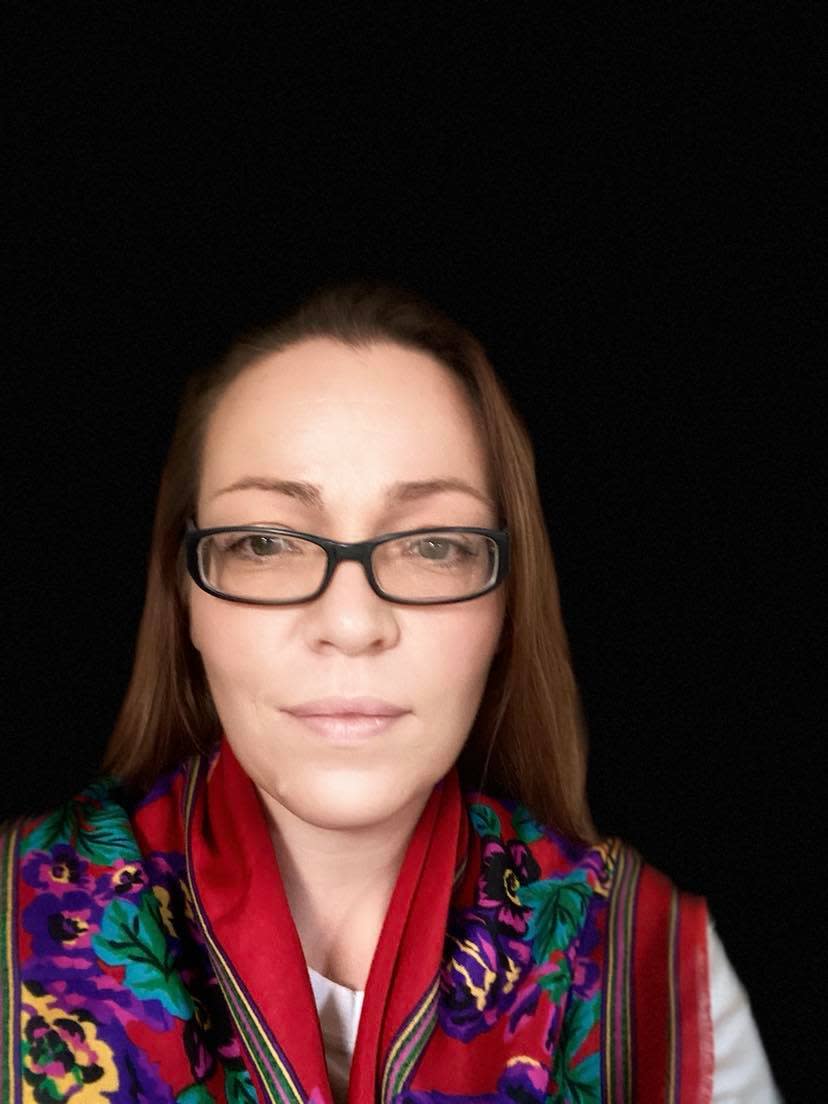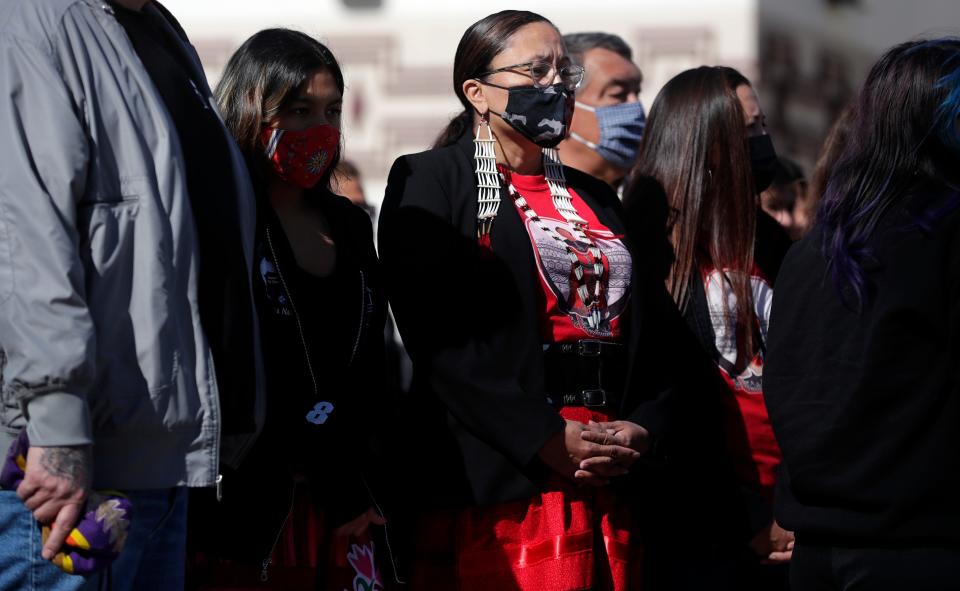Wisconsin woman teams with MIT to map violence against Indigenous people in Great Lakes region
GRESHAM – In her years of working with families of murdered and missing Indigenous women and girls, Kristin Welch saw issues in connecting people with the resources they need.
Welch hopes a new fellowship with the Massachusetts Institute of Technology can help address that.
This year, she founded the nonprofit Waking Women Healing Institute that serves people in Wisconsin and the Great Lakes region who are affected by a national epidemic of missing and murdered Indigenous people.
Welch and the institute help people find support groups, navigate the justice system and create visibility for cases often ignored in the media.
A Menominee descendant, she had previously worked on the issue of murdered and missing Indigenous women and girls with Menīkānaehkem-Menominee Community Rebuilders, a grassroots organization based on the Menominee Reservation.
The extensive national coverage this past summer of the disappearance of Gabby Petito, whose body was later discovered in Wyoming, was a reminder to some about the lack of attention to missing people of color.
More that 700 Indigenous people disappeared in Wyoming from 2011 to 2020, according to a report by Wyoming’s Missing and Murdered Indigenous Persons Task Force, yet those cases didn’t receive nearly as much media attention as Petito's.
About half of those missing were reported found within a week while 21% remained missing for 30 days or longer, compared with 11% of white people who remained missing for that long.

“(Indigenous) families are retraumatized when trying to navigate complex justice systems and are virtually invisible in both the media and data,” Welch said.
Waking Women Healing Institute, based in Gresham, includes a team of counselors, cultural advisers, case workers and a former law enforcement detective who help families follow court cases, heal and cope in the Indigenous way and create visibility for their cases.
RELATED: This Valentine's Day, advocates take aim at violence against Indigenous women
RELATED: Katelyn Kelley case: What we know after her body was found on the Menominee reservation
Indigenous families of missing people have few resources to turn to, and there’s no direct way to collect Indigenous-led data, document survivor stories and create tribal solutions, Welch said.
But using a $25,000 grant from Vodafone Americas Foundation, Waking Women is working with MIT on a fellowship project called ArcGIS Online — which creates interactive maps that will show where the crimes and missing-people reports are happening in the Great Lakes region and show where families and survivors can go to seek cultural healing.
“We can collect data across systems and jurisdictions to create interactive maps and coordinate solutions," Welch said. "Once the data is analyzed our collaboration will use story mapping to create systems’ change that reduce and eliminate violence against Indigenous women and girls and 2spirits (people who are LGBTQ).”
The work Welch is doing at Waking Women coincides with the work she is doing as a member of the Wisconsin Murdered and Missing Indigenous Women Task Force, which was formed last year by Attorney General Josh Kaul’s office.
The task force is seeking to uncover the causes of the murdered and missing Indigenous women epidemic and provide policy recommendations to law enforcement and to the state Legislature.

The state has no formal record of the number of murdered and missing Indigenous women in Wisconsin, and that’s one item the task force aims to address.
Research from the National Center for Biotechnology Information shows that Indigenous women are three times more likely to be murdered than white women.
In 2016, there were 5,712 cases of missing and murdered Indigenous women and girls, according to the Urban Indian Health Institute, but only 116 cases were logged into the U.S. Department of Justice database.
Welch was a key figure in helping to form the Wisconsin task force but believes Waking Women can help address areas the task force can’t, such as healing spaces for families and survivors.
She mostly works out of her home in Gresham, but in 2022 Welch is hoping to establish a separate physical office for Waking Women in Wisconsin.
The first story map for ArcGIS is being created now, and Welch said ideas for some of the maps include community stories of healing and justice work and mapping where healing resources are located.
"It is intended to be shared publicly for awareness, education, and to uplift our stories of healing and justice," Welch said. "It will be led and directed by families and survivors as to how the stories are built and shared. ... The purpose is to ignite healing and justice through our traditional ways of storytelling."
She said she hopes the project will inspire other grassroots organizations to action, as well as social services agencies to become more involved.
Report For America corps member based at the Green Bay Press-Gazette covering Native American issues in Wisconsin. He can be reached at 920-228-0437 or fvaisvilas@gannett.com, or on Twitter at @vaisvilas_frank. Please consider supporting journalism that informs our democracy with a tax-deductible gift to this reporting effort at GreenBayPressGazette.com/RFA.
This article originally appeared on Green Bay Press-Gazette: Wisconsin nonprofit and MIT track violence against Indigenous people

